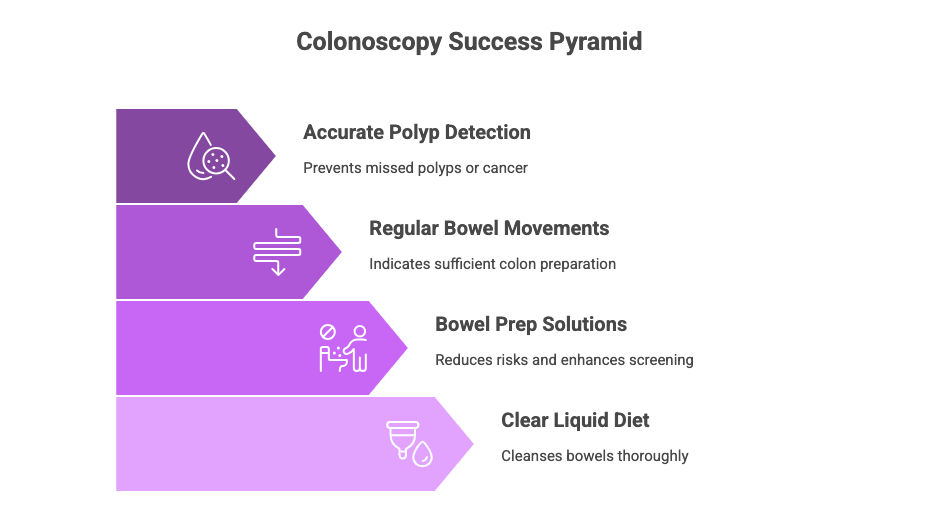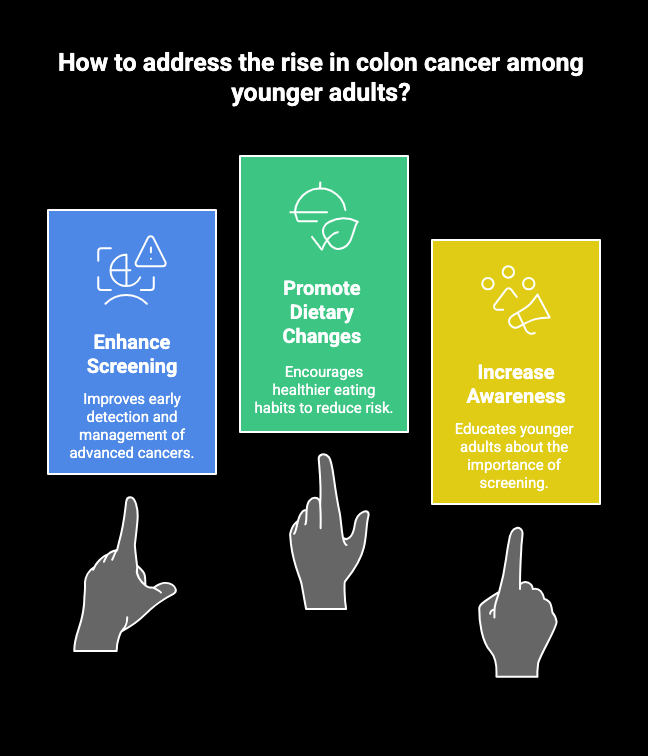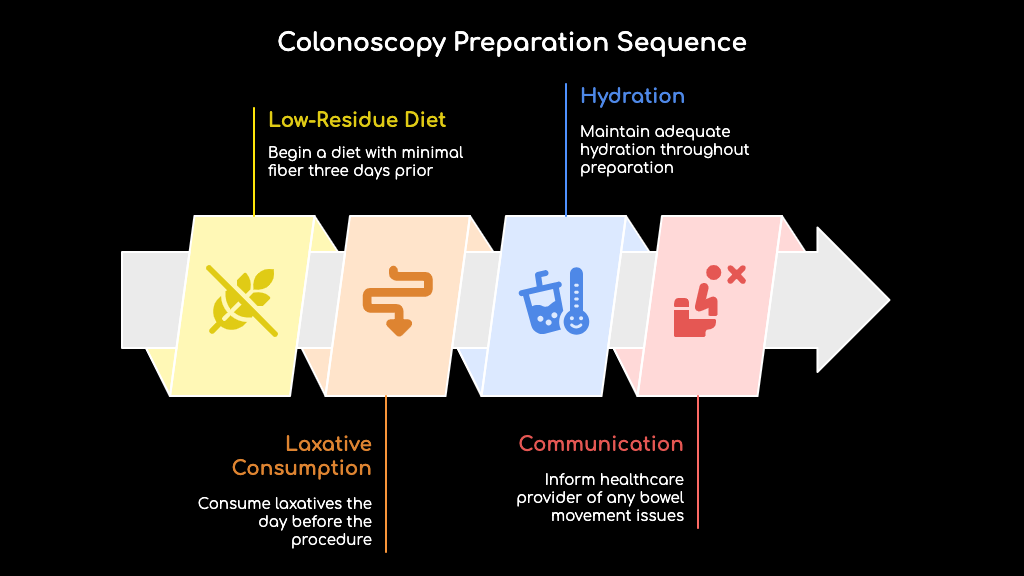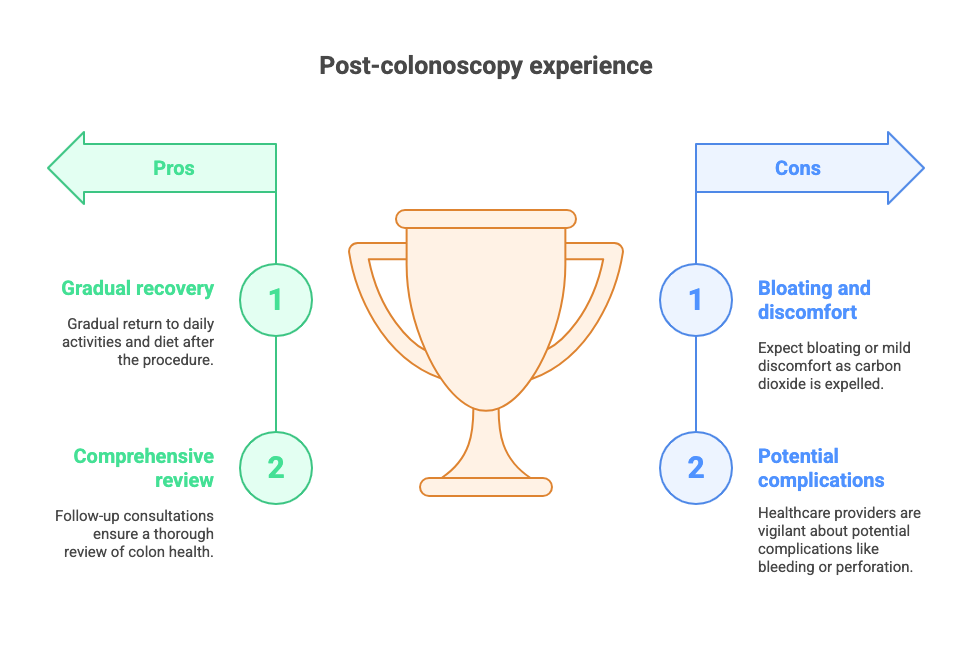Key Highlights
- Good colonoscopy preparation makes the procedure go well and helps doctors find any colon polyps in the inside of your colon.
- Doing your bowel preparation the right way lowers risks and makes colorectal cancer screening work better.
- A clear liquid diet before your colonoscopy is needed to clean out your bowels really well.
- Knowing about different bowel prep solutions lets you pick one that may have fewer side effects.
- Doing the prep the right way helps make sure polyps or colon cancer are not missed during colonoscopy screening.
- If you are having regular bowel movements, it shows your colon is ready for the cancer screening or colonoscopy.

Introduction to Colon Cancer Screening
Hello readers, I’m Dr. Kulmeet Kundlas, and I work as a primary care physician. I care a lot about giving the best, evidence-based care. Cancer screening is now a big part of how we judge the quality of healthcare. I want to talk about the problems people and clinics face with colon cancer screening. Every year, over 100,000 people are told they have this disease. Many also die from it. There are good screening tests for this type of cancer, but not many people choose to get them. I hope to give you clear and full information that uses the best facts we have. I will explain why colonoscopy is important, how you can look at your own risk, and what steps are needed before, during, and after the test. I will also talk about what problems or complications you might need to watch for.
Why Screen for Colon Cancer?
Getting people to have a colonoscopy is very important because cases of colon cancer are rising, especially in younger adults under 50. This increase is happening because of changes in how people eat and live. More people are eating processed foods and not enough foods with fiber.
Better screening helps doctors find and manage colon cancer more often now. Still, everyone needs to stay watchful, especially younger people. In many cases, colon cancers are already advanced when they are found in younger people. So, it is important for everyone to know about colon cancer and have a colonoscopy if needed.

Identifying Your Risk Level
Colonoscopy is something that everyone should think about, but knowing your own risk can help decide how often you need the test. The American Cancer Society says that people who are over 45 and have an average risk should have a colonoscopy every ten years. This is true if there are no polyps or warning signs. Some people may be at moderate risk. This group can include those with long-term constipation, weight loss, a family history of colon cancer, or if they have had polyps before. A person who has conditions like ulcerative colitis or Crohn’s disease is in the high-risk group.
Finding colon cancer early can help cure it 90-95% of the time. If you wait and the cancer spreads, it gets much harder to treat. That is why it is important to do early screening with a colonoscopy and look out for things like polyps in the colon. This is one way for us to stay healthy and spot problems before they get worse.
Comparing PEG-Based and Saline-Based Formulas
Knowing the differences between PEG-based and saline-based colonoscopy prep solutions can help you choose the one that will be best for you. A colonoscopy needs the right prep, so it is good to learn about each option. With this information, you can feel better about your choice for a colonoscopy prep.
|
Item |
PEG-Based Prep |
Saline-Based Prep |
|---|---|---|
|
Active Ingredient |
Polyethylene Glycol |
Sodium Phosphate |
|
Form |
Powder that mixes with water |
Tablets or a liquid |
|
Safety |
Better to use if you have kidney or heart disease |
May cause electrolyte imbalances |
|
Volume |
You may need up to 4 litres of water |
Often needs less to drink |
|
Side Effects |
Usually just some mild discomfort |
Could lead to intestinal irritation |
PEG-based colonoscopy prep is often easier on the body, especially if you have heart disease or kidney problems. Saline-based prep lets you take tablets, and some people feel this is more simple. There is not one answer that works for everyone. It is good to talk with your doctor to find what is best for your body and your needs. Both types of colonoscopy prep come with their own risks and side effects, like discomfort or possible electrolyte imbalances. Your doctor knows what is best for you, so always ask for advice about colonoscopy, prep, and any trouble with the heart, kidney, or other health concerns.
Preparing for a Colonoscopy
Many people feel put off by how invasive a colonoscopy can be. The steps to get ready for it are also challenging for some. But getting prepared is important. It helps make sure the colon is clean for a clear exam.
About three days before your colonoscopy, you need to start a low-residue diet. This is a diet with very little fiber. A day before your test, you must take laxatives. These help to clean out your colon.
The type of laxative that you use can change based on your health. Your gastroenterologist will decide which one is best for you. As you get ready for your colonoscopy, it is important to drink enough water. If you have any trouble with your bowel movements during this time, let your healthcare provider know.

On the Day of the Procedure
Anesthesia will be given during the procedure, so you need to arrange a way to get home after it is done. When you arrive, your personal details, insurance, and medical history will be checked before you go on. The procedure uses a type of conscious sedation. Most people feel like they are in a calm sleep during this time. As the procedure goes on, the gastroenterologist will look inside and take samples if there is anything that does not look normal.
After the Colonoscopy
After the procedure, you may feel some bloating or mild discomfort. This happens because of the carbon dioxide used to expand the colon. As the gas leaves your body, these feelings should go away. Your healthcare team will watch out for any problems, like bleeding or a tear in the colon. These complications are rare and can be taken care of if they show up. It is best to slowly return to your normal activities and regular diet after the exam. If a biopsy was done, the results will be explained at your next visit. This way, you will get a full report on your colon health.

Conclusion and Encouragement for Action
This blog gives a simple look at the colonoscopy process. You will read about why it is important, how to get ready, and what happens during each part. If you or someone you know is due for cancer screening, I want to say this is for your own health and peace of mind. When you take part in recommended colon cancer screening, it does not just help you. It also helps us reach the bigger goal of finding colon cancer early and stopping it before it gets worse. Your health and well-being matter to all of us.
Frequently Asked Questions
What Happens If I Don’t Finish All of the Prep Solution?
If you do not finish the colonoscopy prep, your colonoscopy may not be completed. This is because the doctor might not be able to see polyps clearly. You could have to book your colonoscopy at another time. That can mean more costs for you. If you are not able to get through all of the prep, call your healthcare provider right away and ask what you should do next.
Can I Take My Regular Medications Before the Procedure?
Some medicines, like blood thinners or those you take for kidney disease, might need to be changed before you go for your colonoscopy. Talk to your doctor to know which ones you can take and which ones you need to stop. Most of the time, your regular medicines, like aspirin, will be fine to use unless your doctor says not to take them.
How Will I Know If My Colon Is Clean Enough?
Your colon is ready when your bowel movements are like water and look yellow. There should be no solid pieces in your stools. If your stools are still cloudy or you see any solid parts, you may need to do more prep for the test. Clear stools make it easier for your doctor to see the lining of the colon.
What Side Effects Are Normal During Prep?
Some side effects can happen during colonoscopy prep. The most common are nausea, diarrhea, and some discomfort. You should keep drinking a lot of water so you do not get dehydration. If the side effects feel too much or you cannot get through the colonoscopy prep, reach out to your doctor.
What Should I Bring With Me on the Day of My Colonoscopy?
Bring your insurance card on the day of your colonoscopy. You should also have a list of any medicines you take with you. Bring any other items your doctor said you need. It is important that an adult goes with you, so you have a safe ride home after the colonoscopy. On the day of your colonoscopy, you can bring water and wipes. These things may help you feel better during the process.


